0
Video
Community:
Jul 15, 2022
People with disabilities have a place to turn to find information on COVID-19. They can contact the Disability Information and Access Line (DIAL) to find vaccine locations, make appointments and arrange for transportation. Trained staff at DIAL can also help people with disabilities track down community supports to help with independent living, such as services that help with health care benefits, financial assistance, housing, food and more. DIAL, operated as a collaboration between a consortium of organizations serving people with disabilities and USAging, is funded by the Administration for Community Living. Staff at DIAL can also make referrals to local disability organizations. For more information, watch this short informational video.
Authored by: Administration for Community Living
Topics: Advocacy, Asset building, Disabilities, Legislation & Policy, Mobility, Stability, Supportive housing
 Shared by Karina George
Shared by Karina George
Karina George posted a
on Jul 15, 2022
Administration for Community Living
People with disabilities have a place to turn to find information on COVID-19. They can contact the Disability Information and Access Line (DIAL) to find vaccine locations, make appointments and arrange for transportation.
0
Video
Community:
Jun 17, 2022
When public libraries and public housing authorities intentionally join forces, the benefits are real and lasting for those living in public housing. This session highlights the partnership between Cuyahoga Metropolitan Housing Authority (CMHA) and Cleveland Public Library (CPL). CMHA and CPL executive leaders will discuss how their agencies strategically aligned their vision for impact and are meeting community needs through the library’s free and accessible resources. CMHA and CPL leaders will also share strategies for creating effective cross-sector partnerships that can drive greater economic mobility and better education and
health outcomes for individuals and families.
Authored by:
Topics: Advocacy, Asset building, CLPHA, Education, Family engagement, Homelessness, Housing, Legislation & Policy, Literacy, Low-income, Supportive housing
 Shared by Karina George
Shared by Karina George
Karina George posted a
on Jun 17, 2022
When public libraries and public housing authorities intentionally join forces, the benefits are real and lasting for those living in public housing. This session highlights the partnership between Cuyahoga Metropolitan Housing Authority (CMHA) and Cleveland Public Library (CPL).
0
Video
Community:
Jun 17, 2022
NYC was an epicenter at the start of the COVID-19 pandemic, and the city’s population density continues to be a driver of the deep, ongoing public health crisis. As NYC’s largest residential landlord, The New York City Housing Authority (NYCHA) unsurprisingly works with a number of health partners to bring information and services to residents, but the Authority hasn’t stopped there. Learn how NYCHA has leveraged partnerships at the intersection of health, housing, and economic opportunity to expand pathways for residents into health training and jobs during the past two years, and what’s on the horizon for the next phase of this exciting work.
Authored by:
Topics: Advocacy, Asset building, CLPHA, Health, Healthy homes, Housing
 Shared by Karina George
Shared by Karina George
Karina George posted a
on Jun 17, 2022
NYC was an epicenter at the start of the COVID-19 pandemic, and the city’s population density continues to be a driver of the deep, ongoing public health crisis.
0
Video
Community:
Jun 17, 2022
This panel discussion will examine the results of efforts to significantly expand the reach of HUD’s Family Self-Sufficiency Program through partnerships between the nonprofit Compass Working Capital and the Boston and Cambridge Housing Authorities. Panelists will discuss their program model and its evaluation, how they have scaled up FSS, what results they have experienced to date, and where they plan to go from here. An FSS program participant will participate in the panel and share their perspective on how the program has benefitted them.
Authored by:
Topics: Advocacy, Asset building, CLPHA, Early childhood, Education, Housing, Legislation & Policy, Research, Supportive housing
 Shared by Karina George
Shared by Karina George
Karina George posted a
on Jun 17, 2022
This panel discussion will examine the results of efforts to significantly expand the reach of HUD’s Family Self-Sufficiency Program through partnerships between the nonprofit Compass Working Capital and the Boston and Cambridge Housing Authorities.
0
News Article
Community:
May 21, 2019
Food is necessary to live, remain healthy, and work. The Improving Access to Nutrition Act, introduced in the U.S. House of Representatives by Rep. Barbara Lee (D-Calif.) May 16, would keep food on the tables of people struggling to find quality employment—instead of leaving them to find a job on an empty stomach.
Authored by: Elizabeth Lower-Basch and Parker Gilkesson for The Hill
Topics: Asset building, Food insecurity, Nutrition, Stability
 Shared by Housing Is
Shared by Housing Is
Housing Is posted a
on May 28, 2019
Elizabeth Lower-Basch and Parker Gilkesson for The Hill
Food is necessary to live, remain healthy, and work. The Improving Access to Nutrition Act, introduced in the U.S. House of Representatives by Rep.
0
Video
Community:
May 21, 2019
On May 21, 2019, the Center for Universal Education and the Future of the Middle Class Initiative at Brookings co-hosted a symposium titled “Building the workforce of the future: Resilient people and places.” Policymakers, practitioners, researchers, and thought leaders from the government, corporate, and nonprofit sectors convened to discuss education and economic development strategies that can provide locally relevant solutions to enhance economic and social mobility.
Authored by: The Brookings Institution
Topics: Asset building, Low-income, Workforce development
 Shared by Housing Is
Shared by Housing Is
Housing Is posted a
on May 28, 2019
The Brookings Institution
On May 21, 2019, the Center for Universal Education and the Future of the Middle Class Initiative at Brookings co-hosted a symposium titled “Building the workforce of the future: Resilient people and places.” Policymakers, practitioners, researchers, and thought leaders from the government, corporat
0
Report
Community:
May 21, 2019
Although today’s U.S. labor market is strong and unemployment is low, many working-age American remain marginalized. As communities across the country grapple with the challenges of an ever-evolving labor market, this report provides a framework for local leaders to grow good jobs through industrial development strategies that are based on their regions’ unique capabilities.
Authored by: Marcela Escobari, Ian Seyal, Jose Morales-Arilla, and Chad Shearer for The Brookings Institution
Topics: Asset building, Community development, Legislation & Policy, Workforce development
 Shared by Housing Is
Shared by Housing Is
Housing Is posted a
on May 24, 2019
Marcela Escobari, Ian Seyal, Jose Morales-Arilla, and Chad Shearer for The Brookings Institution
Although today’s U.S. labor market is strong and unemployment is low, many working-age American remain marginalized.
0
Webinar
Community:
Mar 1, 2017
This webinar explored strategies for leveraging data to support college and career readiness and success (CCRS) goals for all students, with special emphasis on students in foster care. With access to quality data, education and child welfare agencies can work together to improve educational outcomes and promote CCRS for students in foster care. Presenters discussed a set of emerging practices that serve as examples of how states can use and link data to support CCRS. As states work to fulfill the requirements of the Every Student Succeeds Act (ESSA), this webinar also aims to provide concrete strategies to leverage the data collection and reporting requirements related to students in foster care to achieve CCRS goals.
Authored by: American Youth Policy Forum
Topics: Asset building, Foster care, Post-secondary, Workforce development, Youth
 Shared by Housing Is
Shared by Housing Is
Housing Is posted a
on May 21, 2019
American Youth Policy Forum
This webinar explored strategies for leveraging data to support college and career readiness and success (CCRS) goals for all students, with special emphasis on students in foster care.
0
Webinar
Community:
May 16, 2019
Puerto Rico faces enormous challenges due to its history as a colony, the state of its finances, and the devastation caused by Hurricane Maria and the US response to it. This has created a will to rebuild the island’s economy in line with a more community-owned vision. In this webinar, we hear from a number of people involved in and leading that effort.
Authored by: Steve Dubb for NPQ
Topics: Asset building, Community development, U.S. Territories
 Shared by Housing Is
Shared by Housing Is
Housing Is posted a
on May 20, 2019
Puerto Rico faces enormous challenges due to its history as a colony, the state of its finances, and the devastation caused by Hurricane Maria and the US response to it. This has created a will to rebuild the island’s economy in line with a more community-owned vision.
0
Policy Brief
Community:
May 2, 2019
Spring is in full bloom in Washington, D.C., and so are key pieces of legislation that FRAC is monitoring and weighing in on. Below is an overview of legislative proposals in the 116th Congress to look out for that would impact critical anti-hunger and anti-poverty programs.
Authored by: Lauren Badger for Food Research & Action Center
Topics: Asset building, Food insecurity, Legislation & Policy, Nutrition, Seniors
 Shared by Housing Is
Shared by Housing Is
Housing Is posted a
on May 6, 2019
Lauren Badger for Food Research & Action Center
Spring is in full bloom in Washington, D.C., and so are key pieces of legislation that FRAC is monitoring and weighing in on. Below is an overview of legislative proposals in the 116th Congress to look out for that would impact critical anti-hunger and anti-poverty programs.
0
News Article
Community:
Apr 26, 2019
Raising the minimum wage helps low-paid workers without damaging the broader economy, the authors of two new research papers find.
Authored by: Richard Florida for City Lab
Topics: Asset building, Legislation & Policy, Low-income, Research
 Shared by Housing Is
Shared by Housing Is
Housing Is posted a
on May 6, 2019
Richard Florida for City Lab
Raising the minimum wage helps low-paid workers without damaging the broader economy, the authors of two new research papers find.
0
Research
Community:
Apr 16, 2019
This report presents a case study of the Chicago Housing Authority’s (CHA’s) work requirement policy, one of a small number of work requirements implemented by housing authorities. The report describes the CHA work requirement, the policy’s implementation and how it has changed, and perceptions of implementation and outcomes from key CHA and service provider staff and residents. The CHA work requirement has been in place for nearly 10 years, allowing us to analyze implementation over time and outcomes.
Authored by: Diane K. Levy, Leiha Edmonds, Samantha Batko, and Marcus Gaddy for The Urban Institute
Topics: Asset building, Legislation & Policy, Low-income, Midwest, Research
 Shared by Housing Is
Shared by Housing Is
Housing Is posted a
on Apr 23, 2019
Diane K. Levy, Leiha Edmonds, Samantha Batko, and Marcus Gaddy for The Urban Institute
This report presents a case study of the Chicago Housing Authority’s (CHA’s) work requirement policy, one of a small number of work requirements implemented by housing authorities.
0
News Article
Community:
Apr 11, 2019
A New Hampshire-based college with a large online enrollment plans to open a new operations center in downtown Tucson in early 2020 that will eventually employ up to 350 people.
Authored by: David Wichner for Arizona Daily Star
Topics: Asset building, Post-secondary, Workforce development
 Shared by Mica O'Brien
Shared by Mica O'Brien
Mica O'Brien posted a
on Apr 18, 2019
David Wichner for Arizona Daily Star
A New Hampshire-based college with a large online enrollment plans to open a new operations center in downtown Tucson in early 2020 that will eventually employ up to 350 people.
0
News Article
Community:
Mar 13, 2019
Lawmakers are currently considering legislation meant to put some extra cash in the pockets of families like Franson’s. House Bill 1527 and its companion, Senate Bill 5810, would create the Working Families Tax Credit, which supporters say would make Washington’s tax code less regressive while helping households with the rising cost of living. The federal government and other states have similar programs and use rely on income tax returns to distribute credits. Washington has no income tax. If the bill passes, people would apply through the state Employment Security Department, which would determine eligibility and calculate and write checks to those eligible.
Authored by: Jake Thomas for The Columbian
Topics: Asset building, Funding, Legislation & Policy, Low-income
 Shared by Housing Is
Shared by Housing Is
Housing Is posted a
on Apr 18, 2019
Jake Thomas for The Columbian
Lawmakers are currently considering legislation meant to put some extra cash in the pockets of families like Franson’s.
0
News Article
Community:
Apr 3, 2019
The Department of Housing and Urban Development issued a proposed rule Wednesday to improve its Section 3 Program, which requires funding recipients to employ low-income people and business.
Authored by: Jessica Guerin for Housing Wire
Topics: Asset building, Housing, Legislation & Policy, Low-income, Metrics, Place-based, Workforce development
 Shared by Housing Is
Shared by Housing Is
Housing Is posted a
on Apr 8, 2019
Jessica Guerin for Housing Wire
The Department of Housing and Urban Development issued a proposed rule Wednesday to improve its Section 3 Program, which requires funding recipients to employ low-income people and business.
0
News Article
Community:
A living wage is an antidepressant. It is a sleep aid. A diet. A stress reliever. It is a contraceptive, preventing teenage pregnancy It prevents premature death. It shields children from neglect.
Authored by: Matthew Desmond for The New York Times Magazine
Topics: Asset building, Legislation & Policy, Low-income
 Shared by Housing Is
Shared by Housing Is
Housing Is posted a
on Apr 4, 2019
Matthew Desmond for The New York Times Magazine
A living wage is an antidepressant. It is a sleep aid. A diet. A stress reliever. It is a contraceptive, preventing teenage pregnancy It prevents premature death. It shields children from neglect.
0
News Article
Community:
Feb 5, 2019
Building more affordable housing units in the metros that are centers of innovation will increase demand for the wares that fill houses, and increase productivity.
Authored by: Richard Floriday for City Lab
Topics: Asset building, Community development, Housing, Legislation & Policy, Research
 Shared by Housing Is
Shared by Housing Is
Housing Is posted a
on Apr 4, 2019
Richard Floriday for City Lab
Building more affordable housing units in the metros that are centers of innovation will increase demand for the wares that fill houses, and increase productivity.
0
Policy Brief
Community:
Mar 1, 2019
A brief to help state and local agencies identify opportunities to align and leverage policies, programs, and funding across the three laws to support the education-to-workforce pipeline; a workbook to facilitate cross-agency conversations to identify and plan for alignment opportunities across ESSA, Perkins V, IDEA and WIOA; and an interactive tool that identifies specific language in the laws that address college and readiness topics and help state education agencies and local education agencies find new or greater alignment opportunities in their plans.
Authored by: College & Career Readiness & Success Center
Topics: Asset building, Education, Legislation & Policy, Post-secondary, Workforce development, Youth
 Shared by Mica O'Brien
Shared by Mica O'Brien
Mica O'Brien posted a
on Apr 2, 2019
College & Career Readiness & Success Center
A brief to help state and local agencies identify opportunities to align and leverage policies, programs, and funding across the three laws to support the education-to-workforce pipeline; a workbook to facilitate cross-agency conversations to identify and plan for alignment opportunities across ESSA
0
Interactive
Community:
Resources from Ascend at The Aspen Institute
Authored by: Ascend: The Aspen Institute
Topics: Asset building, Child welfare, Dual-generation, Early childhood, Family engagement, Research, Youth
 Shared by Mica O'Brien
Shared by Mica O'Brien
Mica O'Brien posted a
on Apr 2, 2019
Ascend: The Aspen Institute
Resources from Ascend at The Aspen Institute
0
Research
Community:
Mar 28, 2019
Federal safety net programs are intended to protect the most vulnerable Americans—such as the elderly, people with severe disabilities and young children. Housing assistance plays a critical role in the safety net, providing decent, safe, and affordable housing for millions of extremely low-income and vulnerable families—though, because it is not an entitlement like other federal safety net programs, the assistance available falls far short of the need. Housing subsidies free families to spend on other essentials like healthy food, education, and health care.
Authored by: Susan J. Popkin for Journal of Housing & Community Development
Topics: Asset building, Dual-generation, Education, Housing, Mental health, Mobility, Partnerships, Research, Workforce development
 Shared by Housing Is
Shared by Housing Is
Housing Is posted a
on Apr 2, 2019
Susan J. Popkin for Journal of Housing & Community Development
Federal safety net programs are intended to protect the most vulnerable Americans—such as the elderly, people with severe disabilities and young children.
0
Podcast
Community:
Asset-based community development (ABCD) is a large and growing movement that considers local assets as the primary building blocks of community development, social capital, and health and well-being. Ron Dwyer-Voss, MA, the Owner of Pacific Community Solutions, who also happens to be a long-time friend of podcast host Peter Eckart, joined the show to discuss how ABCD draws on existing strengths of local residents, associations, and institutions to build stronger, healthier, and more sustainable communities. He shared strategies, tools, and examples of how ABCD can be used to engage community residents and support them in understanding and applying their power to improve their neighborhoods.
Authored by: All In: Data for Community Health
Topics: Asset building, Community development, Health, Partnerships
 Shared by Housing Is
Shared by Housing Is
Housing Is posted a
on Mar 19, 2019
All In: Data for Community Health
Asset-based community development (ABCD) is a large and growing movement that considers local assets as the primary building blocks of community development, social capital, and health and well-being.
0
Research
Community:
Jan 31, 2019
Because mental health conditions can negatively affect employment, people with these conditions make up a large share of federal disability program participants. Federal agencies have tested supported employment (SE) interventions designed to help those with mental health conditions keep or obtain employment and reduce their dependence on public programs. This brief describes the characteristics of adults with mental health conditions who participate in the federal disability programs and reports evidence from three recent studies of longer-term impacts of SE on the employment of people with mental health conditions. The findings indicate that, although a large share of disability program participants with mental health conditions report that they want to work, many face barriers, including being discouraged by failed past work attempts.
Authored by: Mathematica Policy Research
Topics: Asset building, Disabilities, Mental health, Research, Workforce development
 Shared by Housing Is
Shared by Housing Is
Housing Is posted a
on Mar 18, 2019
Mathematica Policy Research
Because mental health conditions can negatively affect employment, people with these conditions make up a large share of federal disability program participants.
0
Research
Community:
Jan 25, 2019
The employment social enterprise (ESE) model can provide an opportunity to create a financially viable business that helps individuals with employment barriers become integrated into the labor force. This research studied eight ESEs. Findings suggest that by applying private‐sector business principles to a workforce development programs, social enterprises can provide participants with meaningful and valuable work experience, while offsetting program costs. Analysis identified four promising practices that social entrepreneurs should adopt when setting up a new enterprise. Enterprises should (a) provide soft‐skill training and social services to participants; (b) operate at a size that allows for economies of scale in production and the provision of support services; (c) have few occupational skill requirements; and (d) hire supervisors with both industry knowledge and the capacity to support individuals with employment barriers.
Authored by: Mathematica Policy Research
Topics: Asset building, Low-income, Research, Workforce development
 Shared by Housing Is
Shared by Housing Is
Housing Is posted a
on Mar 18, 2019
Mathematica Policy Research
The employment social enterprise (ESE) model can provide an opportunity to create a financially viable business that helps individuals with employment barriers become integrated into the labor force. This research studied eight ESEs.
0
News Article
Community:
Mar 15, 2019
The venture is a small yet innovative player in a growing number of nonprofits developing new models for work force training. Their overarching goal is upward mobility for low-income Americans and the two-thirds of workers without four-year college degrees.
Authored by: Steve Lohr for The New York Times
Topics: Asset building, Broadband, Low-income, Workforce development
 Shared by Housing Is
Shared by Housing Is
Housing Is posted a
on Mar 15, 2019
Steve Lohr for The New York Times
The venture is a small yet innovative player in a growing number of nonprofits developing new models for work force training. Their overarching goal is upward mobility for low-income Americans and the two-thirds of workers without four-year college degrees.
0
News Article
Community:
Feb 5, 2019
We beef up law enforcement to attack crime, devote more funding to try and improve inadequate schools and tackle health disparities by getting more people to the doctor. But what if Baltimore could solve all of its persistent social problems by getting rid of poverty?
Authored by: Baltimore Sun Editorial Board for The Baltimore Sun
Topics: Asset building, Criminal justice, Funding, Health, Legislation & Policy, Low-income, Mental health
 Shared by Housing Is
Shared by Housing Is
Housing Is posted a
on Mar 11, 2019
Baltimore Sun Editorial Board for The Baltimore Sun
We beef up law enforcement to attack crime, devote more funding to try and improve inadequate schools and tackle health disparities by getting more people to the doctor. But what if Baltimore could solve all of its persistent social problems by getting rid of poverty?
 Shared by Karina George
on Jul 15, 2022
Shared by Karina George
on Jul 15, 2022
 Shared by Karina George
on Jun 17, 2022
Shared by Karina George
on Jun 17, 2022
 Shared by Karina George
on Jun 17, 2022
Shared by Karina George
on Jun 17, 2022
 Shared by Karina George
on Jun 17, 2022
Shared by Karina George
on Jun 17, 2022
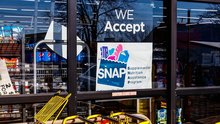
 Shared by Housing Is
on May 28, 2019
Shared by Housing Is
on May 28, 2019

 Shared by Housing Is
on May 28, 2019
Shared by Housing Is
on May 28, 2019
 Shared by Housing Is
on May 24, 2019
Shared by Housing Is
on May 24, 2019
 Shared by Housing Is
on May 21, 2019
Shared by Housing Is
on May 21, 2019
 Shared by Housing Is
on May 20, 2019
Shared by Housing Is
on May 20, 2019
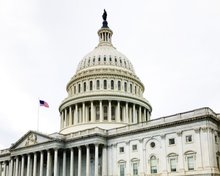
 Shared by Housing Is
on May 6, 2019
Shared by Housing Is
on May 6, 2019
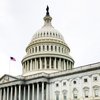
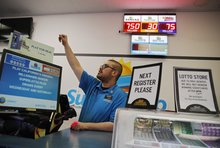
 Shared by Housing Is
on May 6, 2019
Shared by Housing Is
on May 6, 2019

 Shared by Housing Is
on Apr 23, 2019
Shared by Housing Is
on Apr 23, 2019
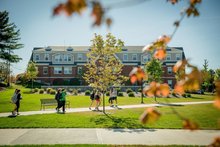

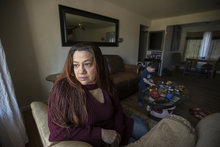
 Shared by Housing Is
on Apr 18, 2019
Shared by Housing Is
on Apr 18, 2019
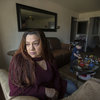
 Shared by Housing Is
on Apr 8, 2019
Shared by Housing Is
on Apr 8, 2019

 Shared by Housing Is
on Apr 4, 2019
Shared by Housing Is
on Apr 4, 2019


 Shared by Housing Is
on Apr 4, 2019
Shared by Housing Is
on Apr 4, 2019

 Shared by Housing Is
on Apr 2, 2019
Shared by Housing Is
on Apr 2, 2019
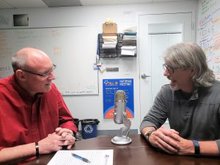
 Shared by Housing Is
on Mar 19, 2019
Shared by Housing Is
on Mar 19, 2019
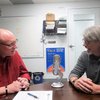
 Shared by Housing Is
on Mar 18, 2019
Shared by Housing Is
on Mar 18, 2019
 Shared by Housing Is
on Mar 18, 2019
Shared by Housing Is
on Mar 18, 2019

 Shared by Housing Is
on Mar 15, 2019
Shared by Housing Is
on Mar 15, 2019


 Shared by Housing Is
on Mar 11, 2019
Shared by Housing Is
on Mar 11, 2019




